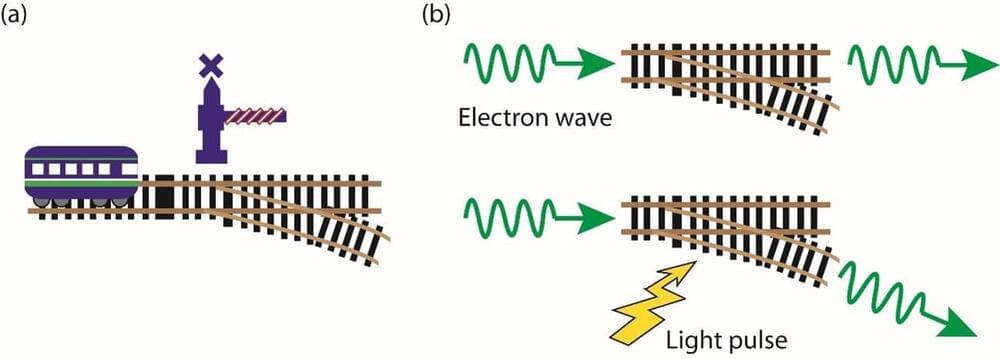For the first time, an international team of researchers, including those from the University of Tokyo’s Institute for Solid State Physics, has demonstrated a switch, analogous to a transistor, made from a single molecule called fullerene.
By using a carefully tuned laser pulse, the researchers are able to use fullerene to switch the path of an incoming electron in a predictable way. This switching process can be three to six orders of magnitude faster than switches in microchips, depending on the laser pulses used. Fullerene switches in a network could produce a computer beyond what is possible with electronic transistors, and they could also lead to unprecedented levels of resolution in microscopic imaging devices.
More than 70 years ago, physicists discovered that molecules emit electrons in the presence of electric fields, and later on, in certain wavelengths of light. The electron emissions created patterns that enticed curiosity but eluded explanation. This has changed thanks to a new theoretical analysis, the ramification of which could not only lead to new high-tech applications, but also improve our ability to scrutinize the physical world itself.
